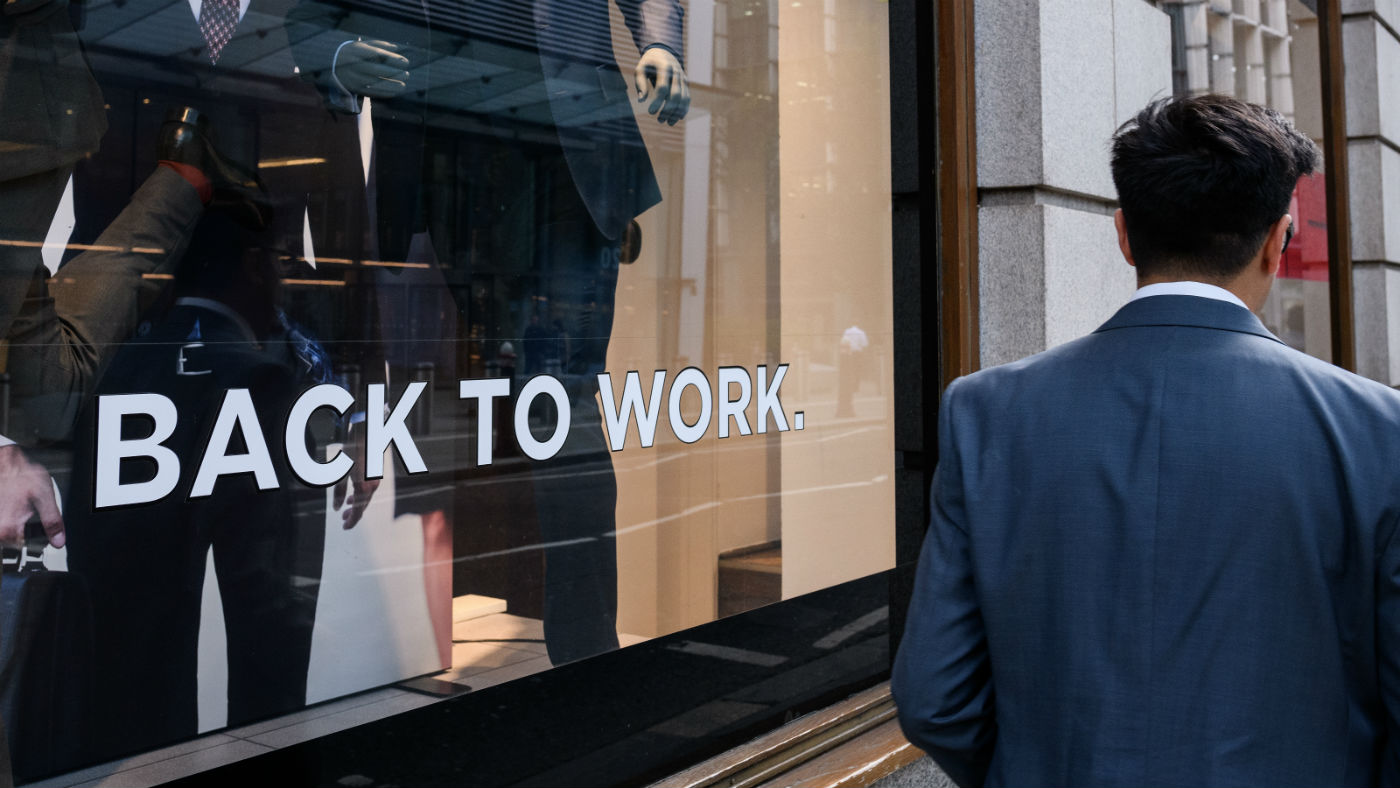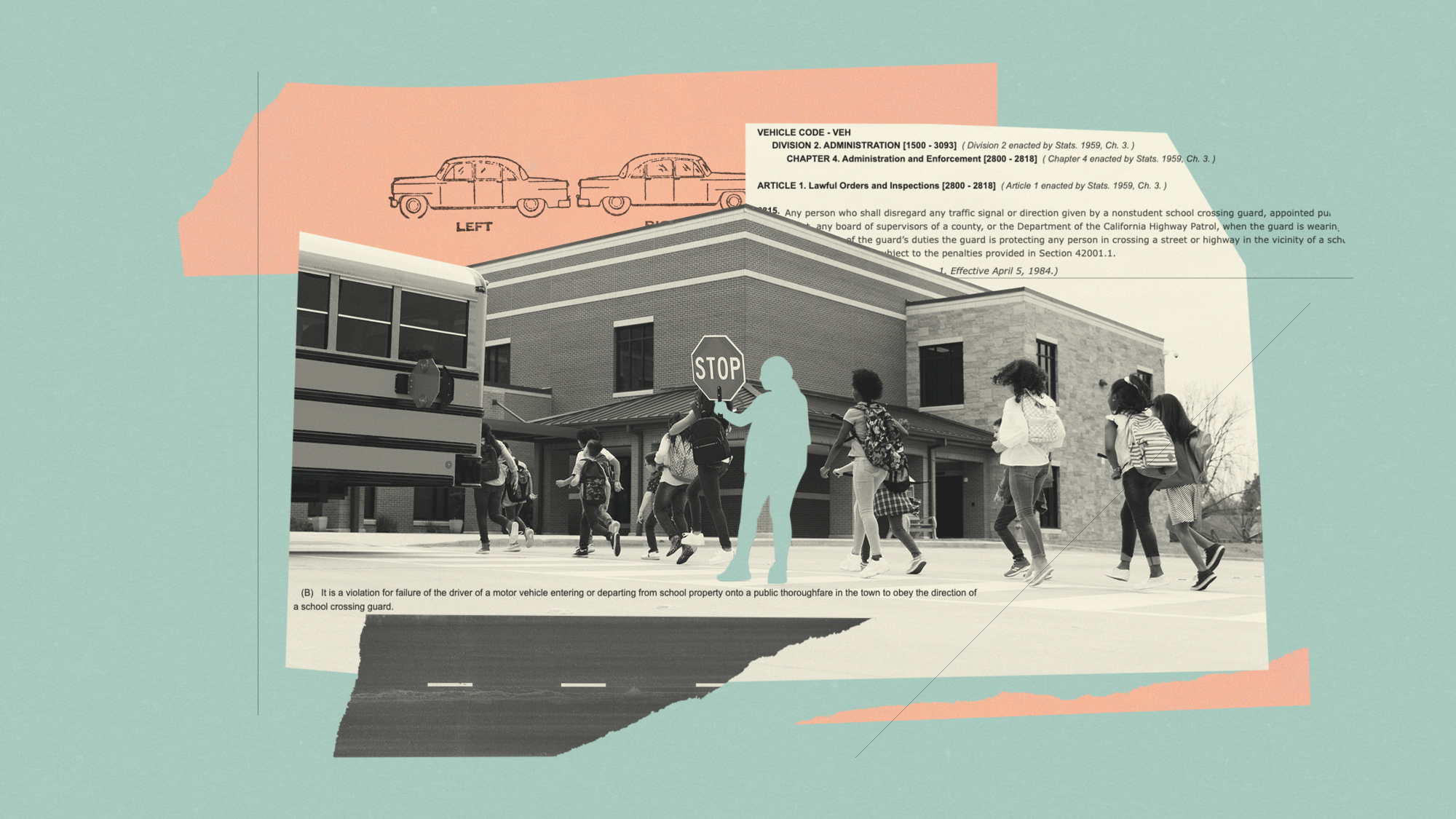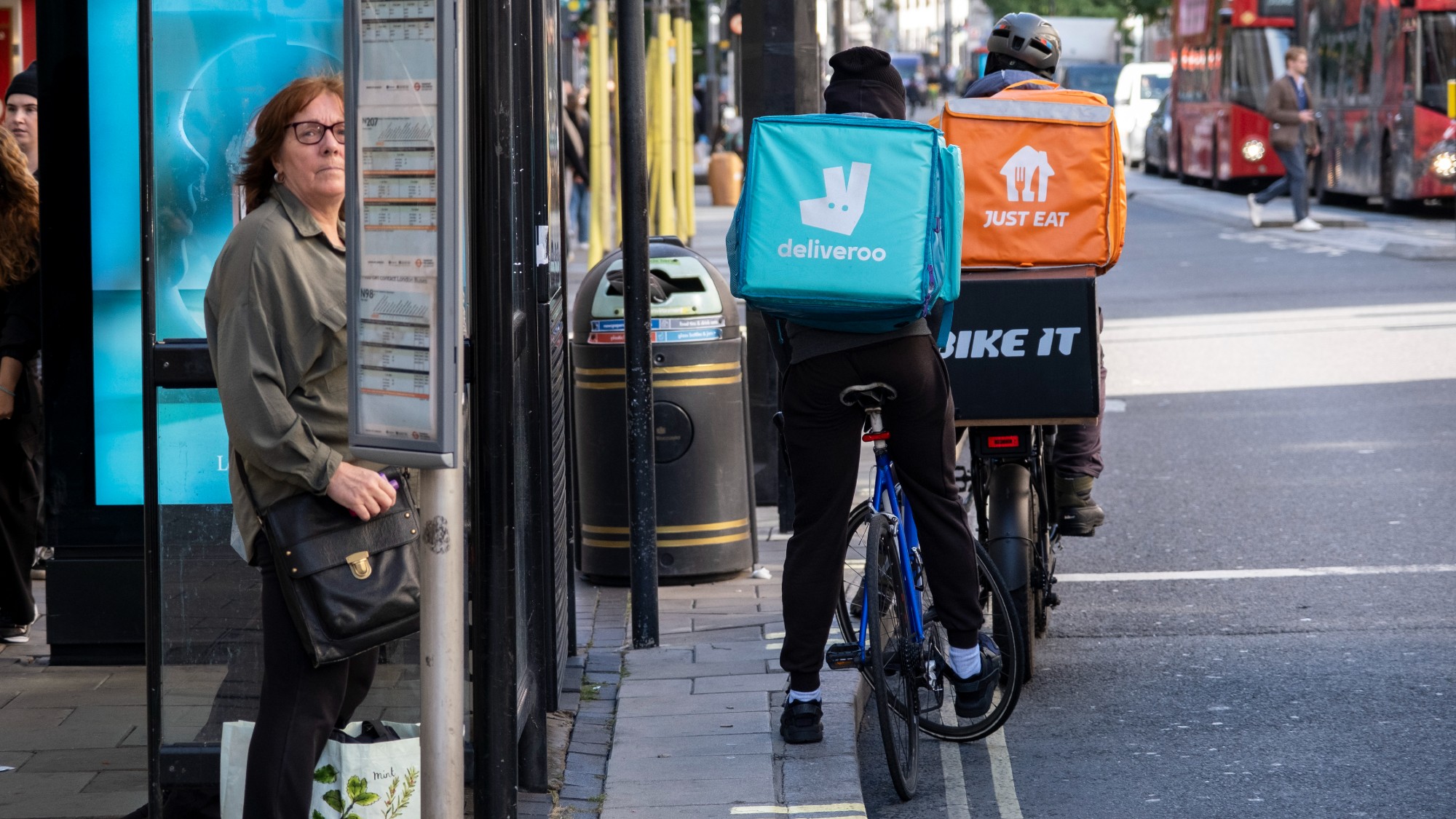Over-50s ‘driving UK’s jobs miracle’
Amid labour market boom, experts say older workers will be vital to addressing the looming workforce shortages

A free daily email with the biggest news stories of the day – and the best features from TheWeek.com
You are now subscribed
Your newsletter sign-up was successful
The UK’s record employment boom is being fuelled by older workers in their 50s and 60s, part of a wider long-term trend that could see older age groups dominate the labour market.
Despite political uncertainty over Brexit hanging over the economy, official figures reveal around 33 million people in the UK are now in employment, or 76% of those eligible for work, an all-time high.
“When you dig beneath the headline figures it becomes clear the UK’s jobs ‘miracle’ is in fact almost entirely driven by older workers,” Tom Selby, senior analyst at AJ Bell, said.
The Week
Escape your echo chamber. Get the facts behind the news, plus analysis from multiple perspectives.

Sign up for The Week's Free Newsletters
From our morning news briefing to a weekly Good News Newsletter, get the best of The Week delivered directly to your inbox.
From our morning news briefing to a weekly Good News Newsletter, get the best of The Week delivered directly to your inbox.
Of the 357,000 new jobs added to the economy in the 12 months to April, over 300,000 of these were given to workers over the age of 50. By comparison, the number of workers aged under 24 dropped by 43,000, while those aged 65 or older rose by 80,000, at least in part resulting from the rise in the state pension age.
“There is a massive change going on around us that I don’t think people are fully appreciating and businesses aren’t fully appreciating,” says Alistair McQueen, head of savings and retirement at Aviva.
“We estimate that the over-50s group will represent one in three workers by 2025 and will become the largest age group demographic by 2030,” he added.
Long-term trends suggest that Britons are not only living for longer but a higher proportion are working into their golden years with companies encouraging their older employees to put off retirement by making work more flexible. The rise in self-employment and the gig economy also means workers can more easily transition into retirement.
A free daily email with the biggest news stories of the day – and the best features from TheWeek.com
This trend even extends to those in their 70s. Research by the Office for National Statistics has shown the number of septuagenarians still working has more than doubled in a decade to nearly half a million.
Nearly one in 12 of those in their 70s are still working, a significant increase from the one in 22 working ten years ago.
“The rise is down to more older people trying to stay active or struggling to get by on paltry pensions,” The Sun says.
It is also about changing work patterns and “a growing understanding of the many health and social benefits that come with working into retirement,” Stuart Lewis, founder of jobs site Rest Less, told The Guardian.
“Work patterns are changing,” says Lewis. “Gone are the days of working hard five days a week for four and a half decades before suddenly stopping and retiring cold turkey.”
With unemployment at a 44-year low, the trend of older workers staying in the labour market is welcome, says the Daily Telegraph “but a big bulge on the UK’s demographics pyramid is set to leave the workforce in the coming years. It could cause a huge shortage in the supply of workers even if many are staying in employment longer”.
The paper suggests “there are a few ways policymakers could tackle the drop off” but using younger workers from abroad to make up the shortfall could prove tricky as “a post-Brexit Britain is likely to have tighter rather than more liberal immigration rules” while boosting the birth rate would also be difficult “given that it has remained below 2 per woman since 1974 and such policies would have a lagged impact even if successful”.
Instead, Patrick Thomson, senior programme manager at the Centre for Ageing Better, suggests employing older workers could help firms struggling to find workers with the right skills.
“With fewer younger people starting work to replace those set to retire in future years, and uncertainty over Brexit and worsening skills and labour shortages, it’s vital that employers adopt age-friendly practices like flexible working,” he told the BBC.
-
 The ‘ravenous’ demand for Cornish minerals
The ‘ravenous’ demand for Cornish mineralsUnder the Radar Growing need for critical minerals to power tech has intensified ‘appetite’ for lithium, which could be a ‘huge boon’ for local economy
-
 Why are election experts taking Trump’s midterm threats seriously?
Why are election experts taking Trump’s midterm threats seriously?IN THE SPOTLIGHT As the president muses about polling place deployments and a centralized electoral system aimed at one-party control, lawmakers are taking this administration at its word
-
 ‘Restaurateurs have become millionaires’
‘Restaurateurs have become millionaires’Instant Opinion Opinion, comment and editorials of the day
-
 Ski town strikers fight rising cost of living
Ski town strikers fight rising cost of livingThe Explainer Telluride is the latest ski resort experiencing a patroller strike
-
 Employees are branching out rather than moving up with career minimalism
Employees are branching out rather than moving up with career minimalismThe explainer From career ladder to lily pad
-
 Out of office: Microretirement is trending in the workplace
Out of office: Microretirement is trending in the workplaceThe explainer Long vacations are the new way to beat burnout
-
 Being a school crossing guard has become a deadly job
Being a school crossing guard has become a deadly jobUnder the Radar At least 230 crossing guards have been hit by cars over the last decade
-
 Can Nigel Farage and Reform balance the books?
Can Nigel Farage and Reform balance the books?Today's Big Question Nigel Farage has, for the first time, ‘articulated something resembling a fiscal rule’ that he hopes will win over voters and the markets
-
 Why 'faceless bots' are interviewing job hunters
Why 'faceless bots' are interviewing job huntersIn The Spotlight Artificial intelligence is taking over a crucial part of recruitment
-
 Champagne problems: migrant vineyard workers treated 'like slaves'
Champagne problems: migrant vineyard workers treated 'like slaves'Under the Radar Convictions spotlight the 'exploitation and misery' at the heart of the 'glamorous' industry
-
 How many people are working illegally in the UK?
How many people are working illegally in the UK?The Explainer Government vows 'nationwide blitz' on illicit workforce believed to number in the hundreds of thousands